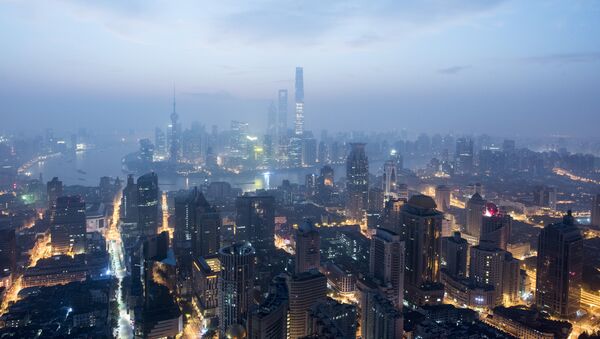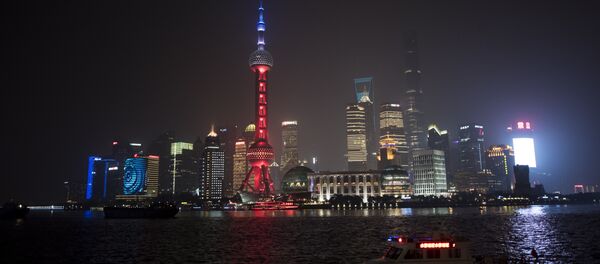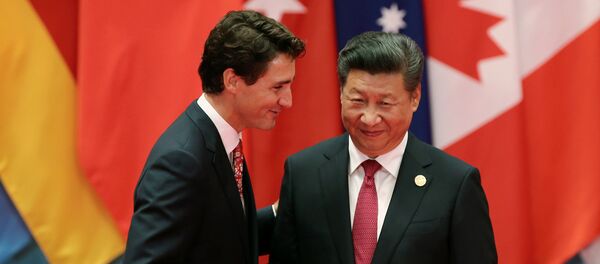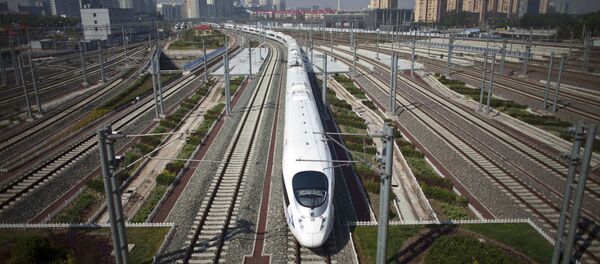According to the report, last year China overtook Japan to become the world's second biggest cross-border investor, after the US. China contributed 9.9 percent of global direct investment in 2015, an increase of 18.3 percent in comparison with the previous year.
China's total investment of $145.67 billion overtook Japan's $128.65 billion, and was second only to the US with $299.96 billion of direct investment.
The Hong Kong-based South China Morning Post (SCMP) reported that direct investment by China's financial institutions rose 26 per cent last year to $24.4 billion.
The newspaper noted that "big Chinese insurers, including Ping An Insurance Group of China and Anbang Insurance Group, have been aggressive in making overseas investment in recent years."
SCMP further reported that "rapid rises in outbound direct investment have, however, fanned concerns over increased pressure on China's foreign exchange reserves and external payments."
In response to these concerns, in June the Chinese government announced an investigation into possible risks to China's foreign exchange reserves, because outbound investment now exceeds foreign investment inflows.
Wang Zhimin, director of the Center for Globalization and Modernization at China's Institute of Foreign Economy and Trade told Sputnik that the increased investment is a natural consequence of China's economic growth.
"Firstly, this is an 'overflow effect' resulting from the Chinese economy's continuous growth. Secondly, continuous economic growth of any country necessarily leads to a process whereby goods exports are followed by investment export," Zhamin said.
"Thirdly, China has the largest foreign exchange reserves in the world, which are a powerful financial support for investing capital abroad. Fourthly, as the world economy grows so are a group of very strong firms, which are becoming some of the world's top 500 companies. These firms consider investment abroad to be a channel of growth. External investment is an important way of improving the industrial structure, which China is interested in today."
"In addition, this is all inseparable from the government's stimulation (of investment). This plays an important role for the health of the world economy. China, in contrast to a number of developed countries, does not attach any kind of political conditions to its investment," Zhamin said.
Andrey Volodin from the Center for Eurasian Studies at the Diplomatic Academy of the Russian Foreign Ministry told Sputnik that the increase in investment is connected to China's Silk Road infrastructure project.
The project, known as "One Belt, One Road," intends to construct an "economic belt" along the original Silk Road that led from China to Europe. The "Maritime Silk Road" links China's ports with those in the South Pacific, Indian Ocean and Mediterranean Sea.
Last year the Chinese government and the China Development Bank announced that the country will invest up to $1 trillion in six economic corridors along the Belt and Road trade route. The China Development Bank said it is financing more than 900 projects involving 60 countries.
"All China's concepts and ideas for the Silk Road, in principle, have the same task – to gain China more open access to world markets by strengthening China's position there," Volodin explained.
"China understands very well that the collapse of the US-centered world, which is happening today in real-time, is the sad consequence of the export of revolutions that the US has imposed on the world since the collapse of the USSR."
"The Clinton administration tried especially hard at that, now the Obama administration is continuing that path. Of course, China sees the weaknesses of this strategy and absolutely doesn't want to repeat it. I can't call this a peaceful offensive by China along the Silk Road, or an attempt to use it to surround potential geopolitical rivals, because I don't see any grounds for that," Volodin said.





